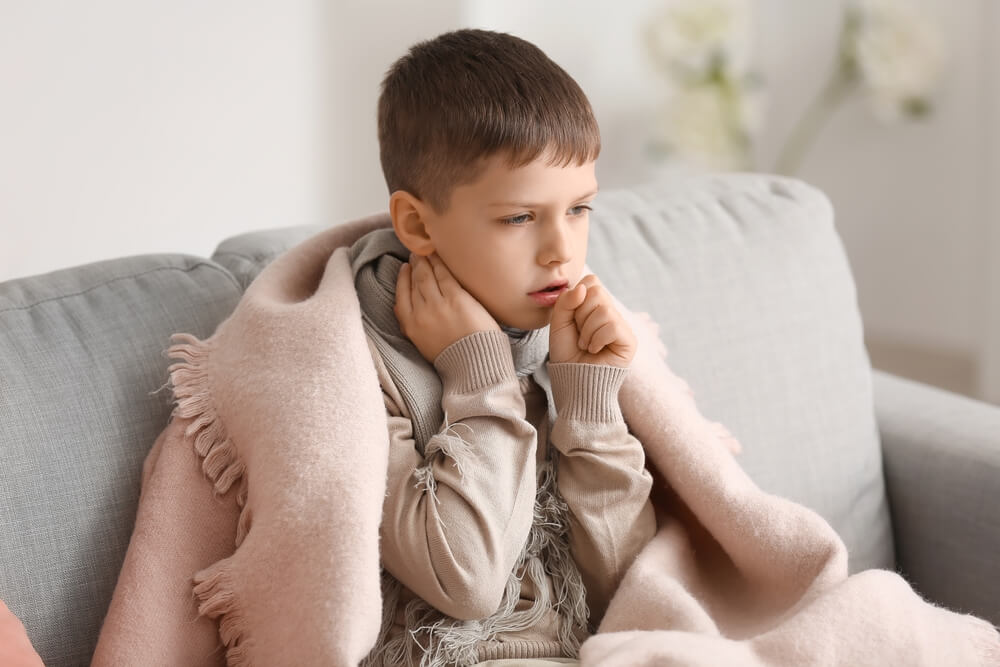Bronchitis, as a general condition, is a type of inflammation of the breathing tubes or bronchi in our lungs. These conditions can be acute or short-term and chronic or long-term. If the symptoms of bronchitis do not last long, that means that your child is suffering from acute bronchitis. In most cases, the symptoms are mild and treatable.
General pediatric care in Plantation and Doral, Florida, is the right choice if you are faced with a case of bronchitis in children. Childcare experts are knowledgeable and experienced enough to guide you on recognizing and approaching treatments for bronchitis in toddlers. Worldwide Pediatrics is a specialized medical facility where numerous parents come in search of help and advice when handling various conditions their children are experiencing, including kids’ bronchitis.
Causes of Bronchitis in Children
The causes of bronchitis in kids depend on the type of condition they have. If it is a case of acute bronchitis in children, then it is most often derived from a viral infection, but the culprits can also be bacteria, allergens, tobacco smoke, strong toxic fumes, and dust. This type of condition can develop after the patient has had a cold or a nasal viral infection (including the mouth and throat, i.e., the upper part of the respiratory tract). These illnesses spread very easily when in contact with an infected individual.
Symptoms of Bronchitis in Kids

When talking about kids’ bronchitis, different symptoms can indicate that your child might be facing some form of this illness. For cases of acute bronchitis, the symptoms last from seven to 14 days, with post-inflammation coughing, which lasts up to a month at a time. To diagnose this condition, you will need to visit your chosen doctor because symptoms of conditions like these can signal various issues, not only bronchitis.
The symptoms which can occur are:
- Vomiting
- Gagging
- Overall discomfort
- Feeling weak and unwell
- Chills
- Pain in the muscles and back
- Wheezing
- Dry cough
- Mucus
- Sore throat
- Fever
- Runny nose before the cough
- Chest pain and congestion
Risk Categories for Bronchitis in Kids
Although bronchitis as a diagnosis can happen to anyone, there are specific categories of kids who are at more significant risk of developing this condition, and they include:
- Kids with allergies
- Patients with chronic sinusitis
- Kids suffering from asthma
- Children who have enlarged adenoids and tonsils
- Kids exposed to secondhand smoke
- Kids who suffer from some other severe health conditions
Diagnosing Acute Bronchitis in Children
As mentioned, you will be obliged to take your child to their chosen doctor when you start noticing the above-mentioned symptoms. Very often, specialists can diagnose this condition from a physical examination and an overview of the child’s medical records. Some patients will need additional testing so that the doctor can rule out additional conditions, such as asthma and pneumonia. The tests doctors often use in these cases are:
- Pulse oximetry is a test where a small device measuring the amount of oxygen in our blood called an oximeter is used. With tests like these, the doctor will put a small sensor on the toe or finger of the patient, and when a red light is on, that means that the device is working. This is a painless procedure, and the red light cannot cause any burns.
- Chest X-rays are a standard procedure for respiratory issues, so this test gives the doctor images of tissues, organs, and bones.
- Nasal and sputum discharge samples test the patient for potential germs that cause an infection.
When the medical professional gets all the necessary data, they can make a proper diagnosis. Make sure you share all the important information with your doctor because this will help them make the most accurate diagnosis possible. This will further help your child get a proper treatment plan which will help them treat bronchitis in the right way.
Acute bronchitis in children can lead to pneumonia, so you must have a timely reaction and take your child to get a proper diagnosis.
Treatments for Bronchitis in Toddlers
As with any other condition, the most important question is always the one concerning potential treatment options. How doctors treat kids’ bronchitis depends on the symptoms, your child’s age, overall health, and the severity of the condition itself.
In almost 90% of the cases, doctors do not recommend taking antibiotics to treat bronchitis which is characterized as acute. The reason for this is that the majority of infections causing bronchitis are caused by viruses, and it is said by experts that even kids who are coughing for ten or more days do not need to take antibiotics. The only time doctors recommend this type of therapy is when your child is facing a bacterial infection.
The main goal of treatments advised for bronchitis is to relieve symptoms and make the child feel more relaxed and at ease. The treatments can include:
- Resting
- Ibuprofen for fever and pains (if recommended by the pediatrician)
- Consuming more fluids
- Taking cough medicine (for children who are older than four and if it is recommended by the responsible doctor)
- Having a humidifier in the child’s room
Do not take any over-the-counter medication if your chosen doctor did not advise you to give it to your child, especially if your kid is younger than four, because they might negatively affect the child. Also, do not give them antihistamines because they dry up the secretions and make the cough even worse.
Aspirin is another medicine that doctors explicitly advise not to give to your children or teenagers. This medicine can cause a rare but dangerous condition called the Reye syndrome, which, although rare, is very severe because it affects the liver and brain and can cause severe damage to children’s bodies.
Is It Possible to Prevent Bronchitis?

Stopping bronchitis in children from developing can only prevent the viruses from spreading. These are some steps you can take:
- Ensuring that your kid always washes their hands
- Teaching your children to cover their mouth and nose when they are sneezing or coughing
- Keeping the child away from sick individuals and keeping the child away from others if they are sick
- Vaccinating your child on time, including the annual flu shot
Contact Our Center!
Bronchitis is a mild condition with mild symptoms, but if you start noticing that your child has a high fever, does not want to eat or drink, or is not having wet diapers, etc., contact our clinic immediately and schedule an examination. Our specialized staff is here for you and your child, so feel free to give us a call.
If you notice the child struggling to breathe or breathing very fast and turning blue, call 911 immediately!



